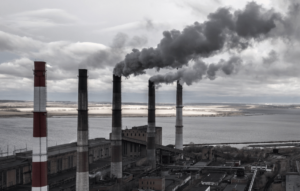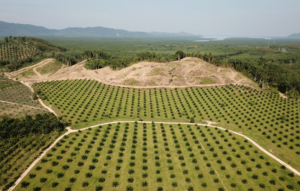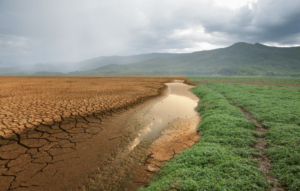The debate over global warming has become one of the most contentious topics of our time, with fervent voices claiming absolutes on all sides. Amidst the noise though, we need to step back and examine why this debate matters so much. Beyond the headlines and the heated arguments, there’s a deeper issue at stake — one that impacts not just our environment but also our economies, policies, and the very future of our society. Understanding why this debate is so important right now means looking beyond the simplified explanations and digging into the complexities that are often overlooked.
While so many are so quick to point fingers — from farmers to fossil fuel companies — the real story is more nuanced. How is it that smaller contributors to climate change, like individual dietary choices, receive so much attention while major factors, such as the rapid expansion of coal power plants in countries like China, are often downplayed? The answer lies in the intersection of economic incentives, political strategies, and public perception.
At this critical juncture, when politics and policies are being shaped that could have substantial consequences, it’s essential to engage in the debate on climate change with nuance, an open mind, and genuine curiosity. We need to ask the hard questions, challenge prevailing narratives, and explore the economic and political forces at play. The stakes have never been higher, and the conversation has never been more urgent.
Certainties and Uncertainties of Climate Change
We often hear that the science on global warming is “settled,” but the reality is far more complex. Yes, there is broad scientific consensus that the Earth’s climate is warming and that human activities play a significant role in this process. However, there remain many aspects that are less certain — from the specific rate and regional impacts of warming to the effectiveness of proposed solutions. It’s in these areas of uncertainty that the debate becomes critical, not just scientifically, but economically and politically.
If we are to truly make progress as a modern civilization, we have to dig deeper into these complexities. Why, for instance, is there so much focus on reducing individual carbon footprints through lifestyle changes like eating less meat, while large-scale issues, such as the continued expansion of coal-fired power plants in countries like China – who were responsible for 95% of the world’s coal power construction activity in 2023 – receive such little attention? Are we missing the bigger picture by simplifying the problem to just a few “bad actors” and neglecting the broader, systemic issues?
issues, such as the continued expansion of coal-fired power plants in countries like China – who were responsible for 95% of the world’s coal power construction activity in 2023 – receive such little attention? Are we missing the bigger picture by simplifying the problem to just a few “bad actors” and neglecting the broader, systemic issues?
By acknowledging both what we know and what we don’t fully understand, we can open the door to more meaningful discussions about the best ways to address climate change. It’s not about dismissing the science — it’s about recognizing the limitations of our current understanding and being open to evolving data. The debate on global warming, if done correctly, is a necessary dialogue that forces us to look beyond easy answers and ask the harder, more impactful questions.
Who Benefits from the Simplified Narratives
Beneath the surface of the global warming debate lies a web of economic incentives that shape the conversation in ways that aren’t always obvious. It’s no secret that various stakeholders — from fossil fuel companies to renewable energy firms — have a vested interest in how the debate is framed. Simplified narratives, like blaming meat eaters for climate change or pushing for rapid transitions to specific technologies, often serve to distract from the more complex and politically sensitive issues, such as the ongoing construction of new coal plants in some of the world’s largest economies.

Why does this happen? Because the economic incentives at play are enormous. Industries and governments worldwide are deeply invested in maintaining their current trajectories. For instance, focusing on lifestyle changes at the individual level might shift public scrutiny away from more significant, systemic changes that would require powerful entities to alter their profit-driven behaviors. Meanwhile, policies promoted by various economic players may lead to financial gains for some while imposing costs on others, all under the banner of combating climate change.
By understanding who benefits from these simplified narratives, we can better see how economic interests often dictate the terms of the debate. The global warming discussion isn’t just about science; it’s about money, power, and influence. Recognizing these dynamics is crucial for anyone who wants to understand why the debate matters so much — and why it’s essential to approach it with a critical, questioning mindset.
Are We Targeting the Right Issues?
When it comes to global warming, the focus of the debate often feels… misplaced. While there is widespread discussion about reducing personal carbon footprints — from eating less meat to recycling more — the conversation frequently overlooks larger-scale contributors to climate change. For example, while much attention is given to individual transportation choices, major global events like the environmental impact of international shipping or the aviation industry continue to operate largely unchecked. The shipping industry alone contributes to a significant portion of global greenhouse gas emissions, yet its practices receive far less scrutiny than they deserve.
Why is there such an intense focus on individual actions when the global picture shows much larger, systemic challenges? Part of the answer lies in how the debate is framed by those with vested interests. Targeting consumers and promoting individual responsibility can serve as a convenient diversion, keeping the public engaged in small-scale changes while avoiding scrutiny of larger economic activities and policies that have far greater environmental consequences.
It’s crucial to ask: Are we focusing on the wrong issues? Should the debate not also hold accountable the larger-scale policies and practices that contribute most to the problem? A nuanced understanding of global warming means recognizing that while small actions can have symbolic value, they must be paired with a critical look at the broader, more impactful sources of climate change. Only by questioning where we direct our focus can we ensure that our efforts are truly effective and meaningful.
Navigating Uncertain Policy Changes with Curiosity and Adaptability
As governments and organizations rush to address climate change, many policies are being crafted and implemented based on our current — yet still evolving — understanding of the issue. While some of these policies may be well-intentioned, they can also come with unintended consequences, especially when they are based on incomplete data or oversimplified narratives. For instance, subsidies for certain renewable technologies have sometimes led to environmental degradation elsewhere, such as the deforestation caused by palm oil production for biofuels, which can ultimately negate some of the intended climate benefits.
This raises a critical point: how do we navigate policy-making in an environment filled with uncertainty? The answer lies in fostering a mindset of curiosity and adaptability. Instead of rigidly adhering to preconceived solutions, we should be open to questioning our assumptions, adapting to new findings, and being willing to pivot when necessary. Policymakers must strike a balance between taking action and remaining flexible, recognizing that our understanding of climate science and its economic impacts will continue to evolve.
filled with uncertainty? The answer lies in fostering a mindset of curiosity and adaptability. Instead of rigidly adhering to preconceived solutions, we should be open to questioning our assumptions, adapting to new findings, and being willing to pivot when necessary. Policymakers must strike a balance between taking action and remaining flexible, recognizing that our understanding of climate science and its economic impacts will continue to evolve.
By encouraging curiosity and adaptability, we can avoid the pitfalls of one-size-fits-all policies and move towards more dynamic, evidence-based approaches. In a world where the stakes are high and the future is uncertain, maintaining this balance is not just wise; it is essential for crafting policies that are both effective and sustainable.
The Importance of Nuance in Avoiding Pitfalls of Rigid Thinking
In the rush to address climate change, it is easy to fall into the trap of rigid thinking — where complex issues are reduced to overly simplistic solutions or narratives. This kind of thinking can be dangerous, leading to policies that may be ineffective or even counterproductive. For example, some carbon offset programs, designed to compensate for emissions by investing in green projects, have been criticized for lacking transparency and failing to deliver the promised environmental benefits. In some cases, they may even create a false sense of security, allowing companies or individuals to continue high-emission activities while assuming the problem is being handled elsewhere.
Nuance is essential for recognizing these pitfalls and ensuring that our approach to climate change and pollution is as effective as possible. Instead of rigidly adhering to one set of beliefs or solutions, we have to take care to remain open to a wide range of perspectives and possibilities. This means acknowledging that while certain actions — like promoting renewable energy or changing agricultural practices — could potentially be helpful, they are not the only answers, nor are they free from drawbacks or unintended consequences.
A nuanced approach also means being prepared to adjust our strategies as new information emerges, recognizing that climate science is continually evolving. By embracing complexity and staying wary of oversimplification, we can avoid the dangers of dogmatic thinking and build a more resilient, adaptive response to global warming. In this way, we can position ourselves not just to mitigate the impacts of climate change but to create a future that is genuinely efficient and responsive to the realities we face.
Closing Thoughts
The debate on global warming is far more than just a clash of opinions; it’s a critical conversation that holds the potential to shape the future of our planet and society. Yet, for this debate to be truly effective, it requires that we commit ourselves to curiosity, a willingness to question oversimplified narratives, and an openness to the nuances that define our understanding of climate change.
It’s important to acknowledge that economic interests, policy changes, and the focus of public discourse are all deeply intertwined. By shifting the conversation away from rigid, black-and-white thinking and embracing a more thoughtful, informed approach, we can better navigate the complexities of global warming. We must be prepared to challenge preconceived notions, adapt our strategies based on new evidence, and look beyond superficial solutions to address the root causes of the issue.
of public discourse are all deeply intertwined. By shifting the conversation away from rigid, black-and-white thinking and embracing a more thoughtful, informed approach, we can better navigate the complexities of global warming. We must be prepared to challenge preconceived notions, adapt our strategies based on new evidence, and look beyond superficial solutions to address the root causes of the issue.
The stakes have never been higher, and the need for a balanced, nuanced dialogue has never been more urgent. The debate on global warming matters now more than ever — not just for the environment, but for our collective future. As we move forward, let’s commit to staying engaged, asking tough questions, and advocating for policies that are grounded in curiosity, adaptability, and a genuine understanding of the challenges we face.








